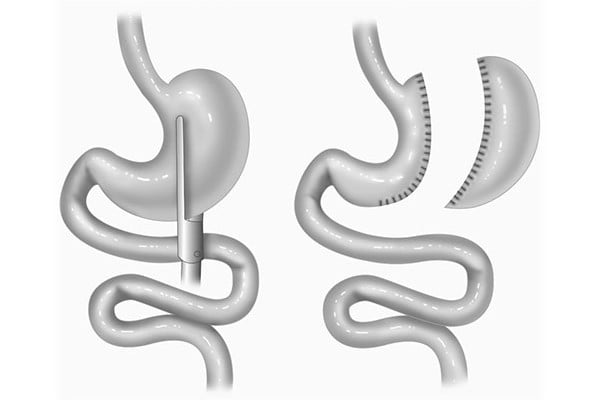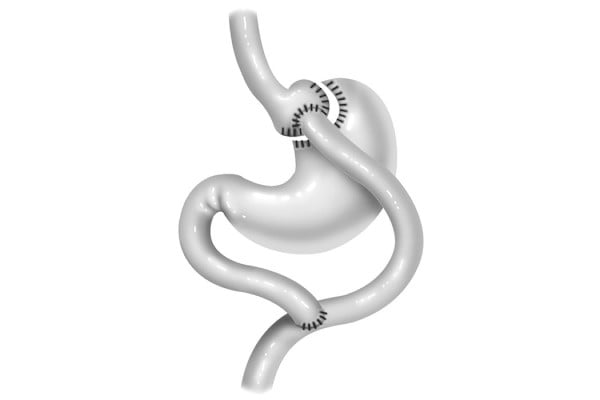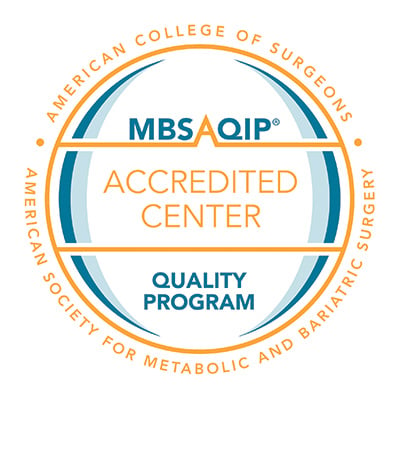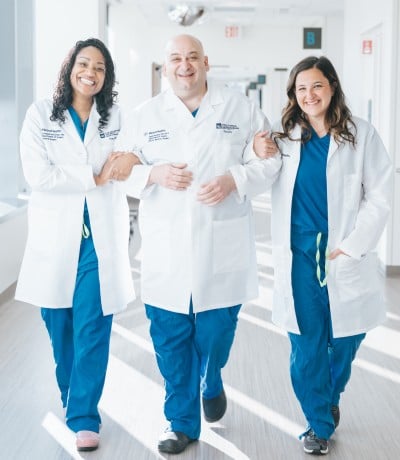Weight Loss Surgery & Weight Management Center

Obesity is a Disease
FIND TREATMENT THAT TRULY FITS YOU
If you’ve struggled with obesity, you know that simply moving more and eating less doesn’t always work. That’s because obesity is a disease that changes your body. Sometimes, these changes can cause serious diseases like cancer, diabetes, heart disease and sleep disorders. And, just like other diseases, obesity isn’t a choice or a reflection of your character.
At the MetroHealth Weight Loss Surgery & Weight Management Center, we have many options to treat your obesity. We understand that obesity is a disease—and deserves to be treated like one.
Our team truly cares, and many of our providers have their own weight loss journeys. We’ll work with you to set goals, choose treatment options and live a healthier life. You’re unique, and you deserve treatment that truly fits your needs.
Start Your Weight Loss Journey Today
Talk to your primary care provider about a referral to the MetroHealth Weight Loss Surgery & Weight Management Center. To learn more about obesity and our treatments, download our information sheet below.



Reset Your Body. Reset Your Life.
At MetroHealth, we walk alongside you every step of the way on your weight loss journey. We work together to create a plan with proven medical solutions.
How Obesity Impacts Your Health
Obesity can cause other serious diseases, so it’s important to find treatment that focuses on your overall health—not just the scale. Our medical and surgical treatments don’t just help you lose weight, they can also improve your overall health.
Obesity treatment can also help with:
- Diabetes/High blood sugar
- Heart Disease
- Sleep apnea
- Anxiety and depression
- Asthma
- High blood pressure
- Snoring
- Liver disease
- Reflux and heartburn
- Joint pain
- Difficulty breathing
- Infertility/PCOS

Reset Your Body. Reset Your Life.
Bariatric surgery is the most effective treatment for weight loss. Nearly 90% of patients who choose bariatric surgery lose weight and stay healthy long-term.

Two surgical options. One healthier life.
MetroHealth’s experienced surgeons will help you decide between two types of surgery.

Gastric Sleeve Surgery
- Removes a large portion of your stomach
- Limits how much food your stomach can hold
- Helps people lose approximately 60% of excess weight

Gastric Bypass Surgery
- Divides your stomach and small intestine into two sections
- Allows food to bypass the larger section
- Helps your body absorb fewer calories.
- Helps people lose 60-80% of excess weight
Both options:
- Use less-invasive techniques for shorter and less painful recovery
- Limit how much food your stomach can hold
- Help you feel more satisfied from food

Treatment that Truly Fits You.
MetroHealth has the most board-certified obesity medicine providers and surgical experts in northeast Ohio. Plus, we work with dietitians, sleep medicine providers, mental health professionals and other specialists to improve your health. If you choose weight loss surgery, our team will support you before, during and after to make sure you have the healthiest outcome.

About Weight Loss Medication
Weight loss medication—a type of medicine called GLP-1s—can help you lower your blood sugar and lose weight by:
- Telling your brain that you are full or satisfied from the food you eat
- Slowing your digestion to help you feel full
Your team will help decide if these medications are right for you.
The MetroHealth Difference

Recognized for High Quality Care
The MetroHealth Weight Loss Center was the first center in Ohio to achieve accreditation from the Metabolic and Bariatric Surgery Accreditation and Quality Improvement Program.

Pioneers in Robotic Surgery
MetroHealth was among the first providers nationally to offer robotic surgery options for weight loss. We’ve been helping people experience surgery with less pain and recovery time since 2022.

A Lifetime of Support
We’re here as long as you need us. You’ll continue to see an obesity medicine provider throughout your lifetime to help you stay healthy. And, you’ll have access to specialists in nutrition, behavioral health, pulmonology, cardiology, diabetes and sleep medicine.
Learn More about Obesity and Weight Loss
If you’re considering surgical or medical weight loss solutions, it’s normal to have questions. Our videos with providers, surgeons and patients answer the most commonly asked questions.
Obesity: A Chronic Desease
Why is obesity a disease?
What happens when people think of obesity as a disease?
Who is impacted by obesity?
Treatment Options
What weight loss surgery options are available?
How can medication help me lose weight?
What kind of success can patients find from medical weight management and weight loss surgery?
Individualized Care, Healthier Outcomes
What happens when people find weight loss success?
How does MetroHealth connect people to resources to meet their weight loss goals?
Why is it important to continue seeing your provider after weight loss surgery?
What results can people achieve with weight loss surgery?
Patient Stories
What is the hardest part about medical weight loss?
Why does choosing a respectful, welcoming provider matter?
Why does listening matter at MetroHealth?
Why is weight loss surgery a good solution for people with diabetes?
Why do you need an individualized approach to obesity?
What happens in the MATCH Clinic?
Our Providers
Related Locations
Brecksville Health and Surgery Center
9200 Treeworth Boulevard
Brecksville
,
OH
44141
MetroHealth Main Campus Medical Center
2500 MetroHealth Drive
Cleveland
,
OH
44109
Middleburg Heights November Family Health Center
7800 Pearl Road
Middleburg Heights
,
OH
44130